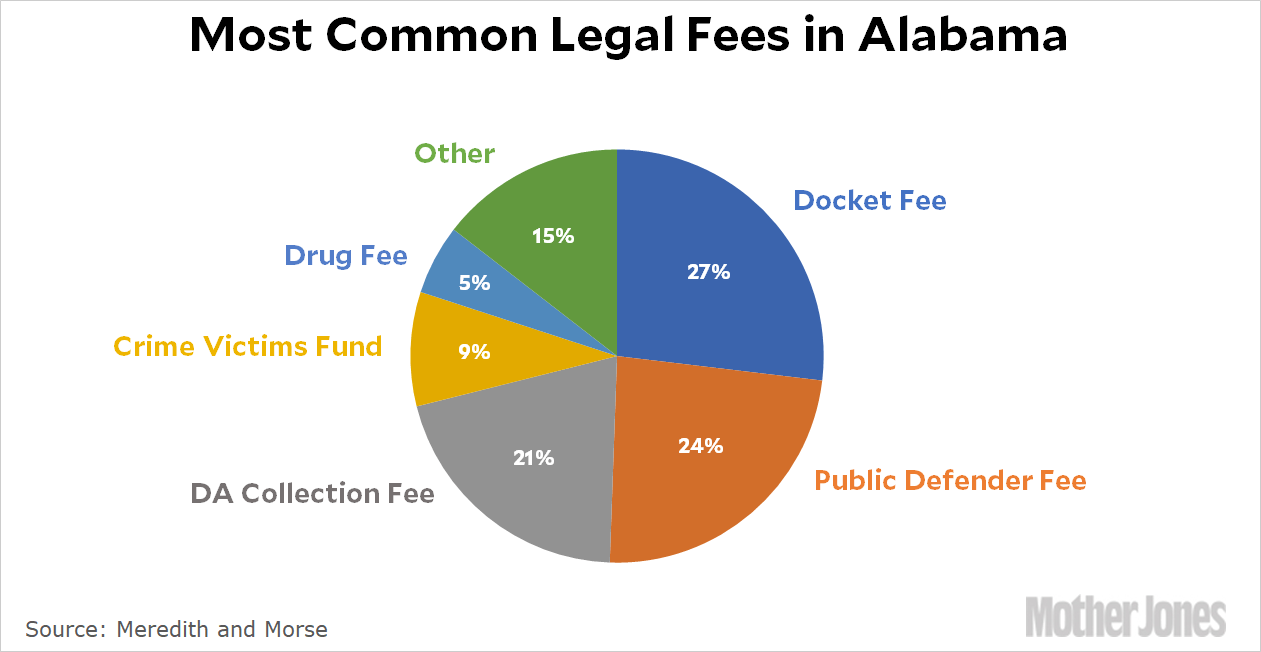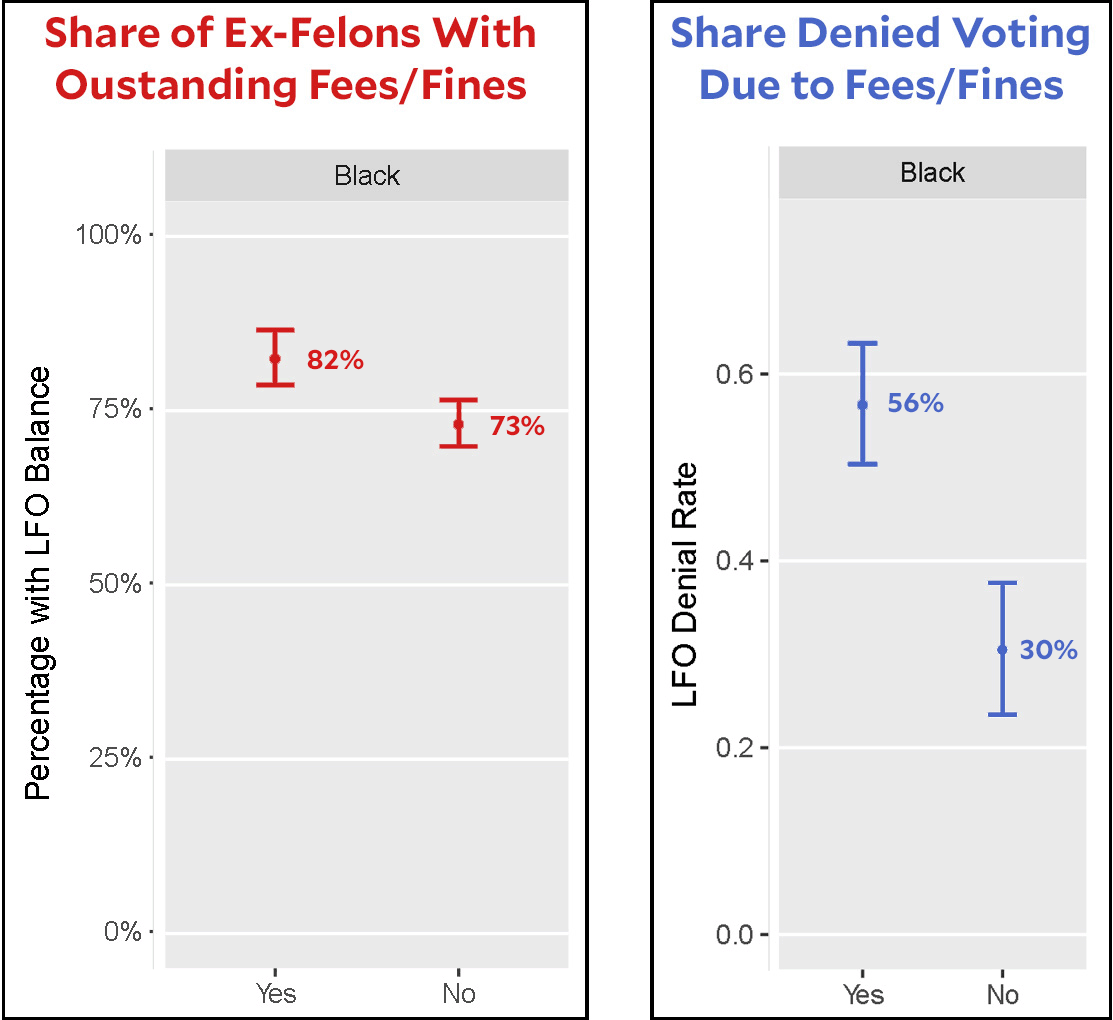Hundreds of thousands of Americans are being denied the right to vote because they are poor. In nine states, Republican legislators have enacted laws that disenfranchise anyone with outstanding legal fees or court fines. For example, in Alabama more than 100,000 people who owe money — roughly 3 percent of the state’s voting-age population — have been struck from voting rolls.
AL.com adds a bit more detail:
In Alabama and eight other states from Nevada to Tennessee, anyone who has lost the franchise cannot regain it until they pay off any outstanding court fines, legal fees and victim restitution. In Alabama, that requirement has fostered an underclass of thousands of people who are unable to vote because they do not have enough money.
In a recent paper, Marc Meredith and Michael Morse calculate that in Alabama, the fees and fines levied on felons amount to an average of about $5,000 per person, and half of the money owed is in the form of legal fees. Here’s how those fees break down:

This affects blacks much more than whites:
Many laws that have a disparate impact on the poor also are likely to have a disparate racial impact because of the strong link between race and wealth in America….The right panel of Figure 3 supplies the missing data and demonstrates that black ex-felons are about 9.4 percentage points (p.p.) less likely to be eligible to vote because of an outstanding [legal] debt….[The] fourth panel of Figure 4 reveals that the disparate impact in eligibility is reproduced in the share of applications denied….Black applicants are 26 p.p. more likely to be denied due to an outstanding debt than non-black applicants.
Here are figures 3 and 4 from the paper. The size of the fees and fines levied on felons is about the same for blacks and whites, but blacks are more likely to have unpaid fees and fines and far more likely to be denied restitution of voting rights due to outstanding fees and fines:

This is the intersection of class and race. The reason blacks are more likely to have unpaid fees and fines is because they’re poorer than whites. But the reason they’re poorer is inextricably bound up in persistent and systemic racism. No court has ever found that this disparate impact of unpaid fees and fines on voting rights is disallowed by the Constitution, but Meredith and Morse suggest that maybe they should start.

















